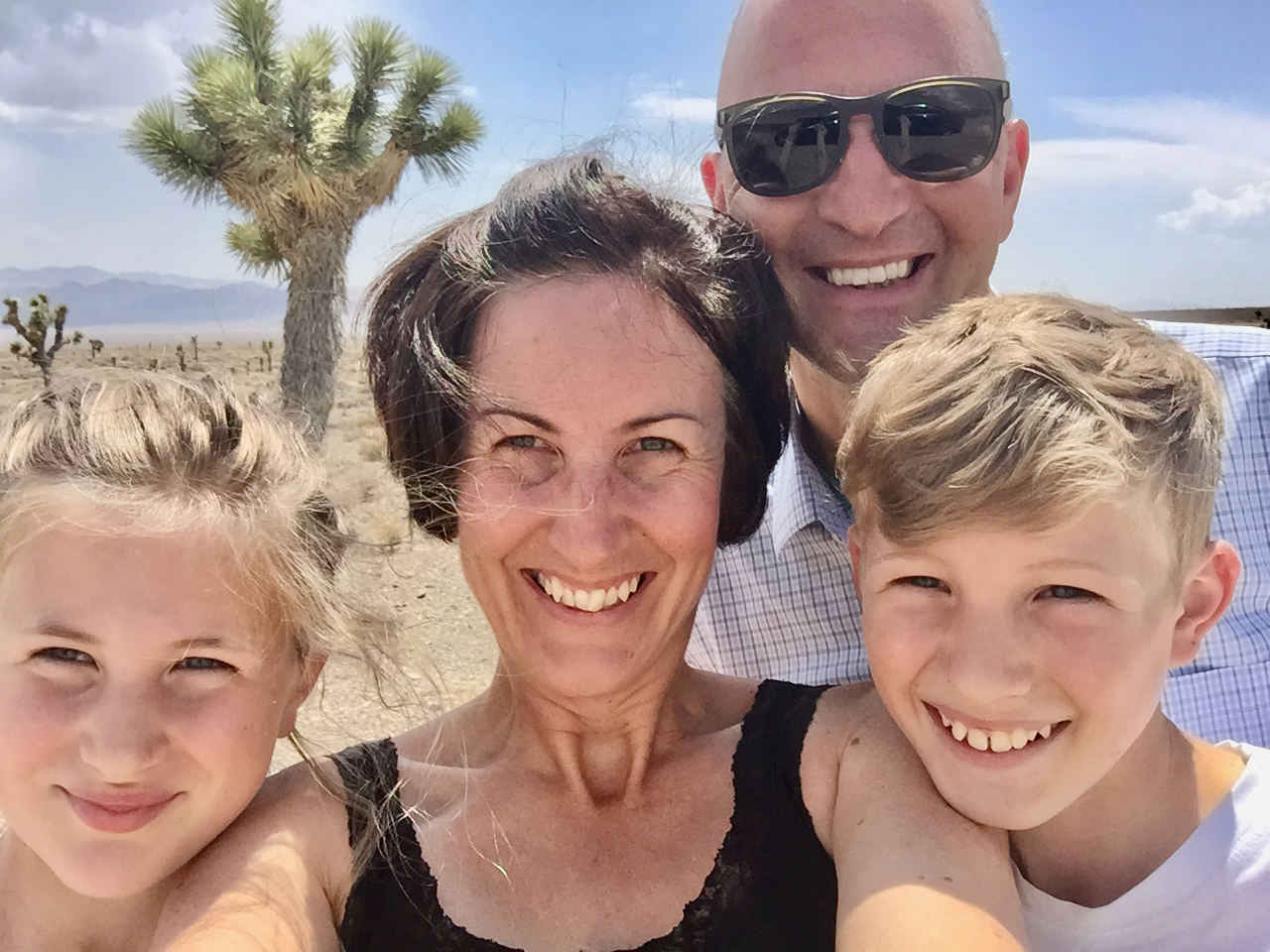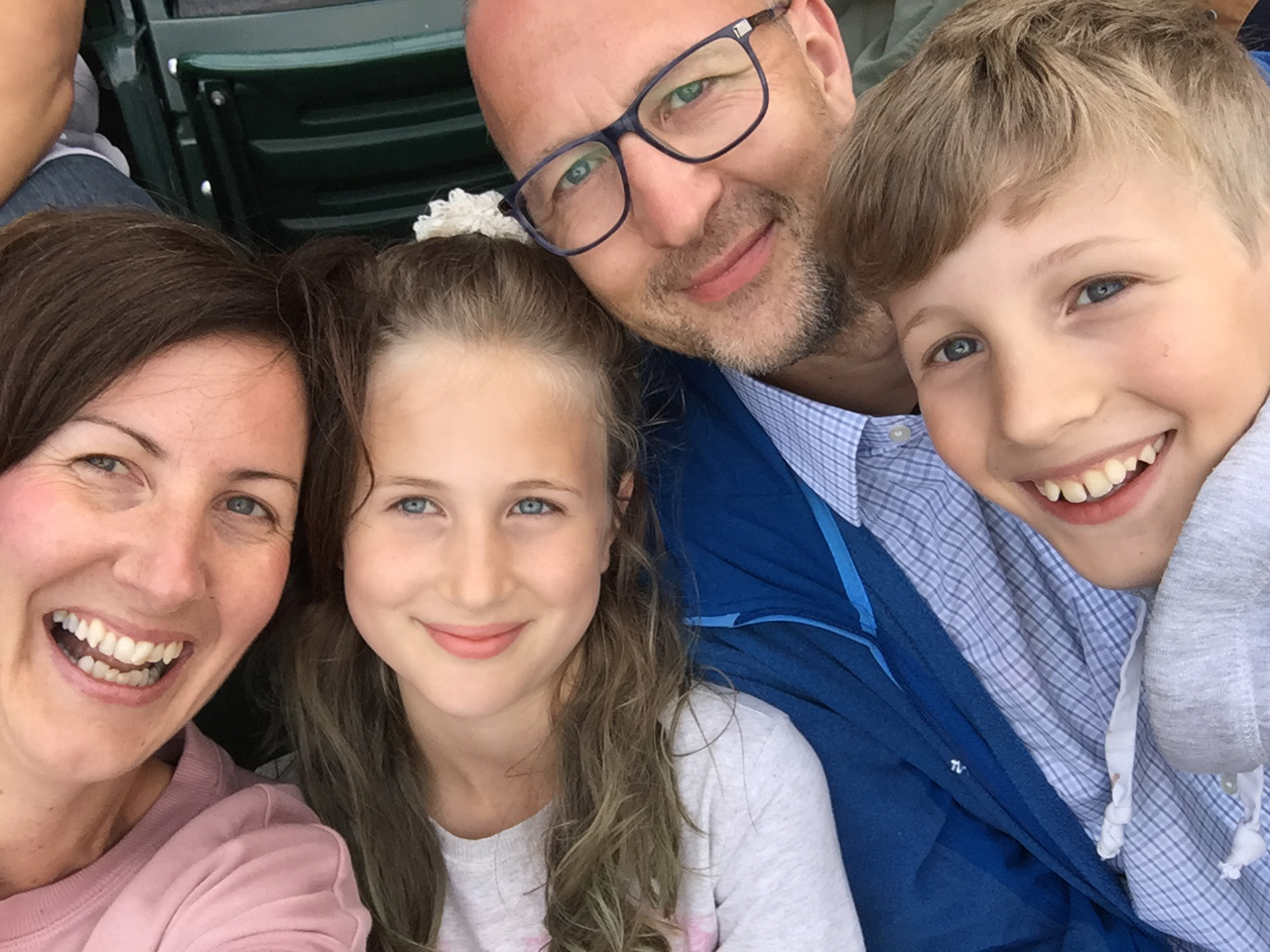
Five minutes with Rob Ivison
ESO’s Director for Science talks offending Greeks with sausages, opening his own coffee shop and the future of astronomy
- What it means to be Director for Science at ESO
- The many life experiences that have allowed Rob Ivison to flourish in this role
- Rob’s comments on the changing landscape for astrophysicists and research over the last three decades
- How Rob came to put the home page for his hometown football club, Blackburn Rovers, on the server of the Royal Observatory Edinburgh
Q. What drew you to choose astronomy/physics as your career path?
A. It was unconventional, despite the fact that my maternal grandparents took me to the Jodrell Bank Observatory every other summer. They had no clue what this huge radio astronomy dish was for but they were very proud of the fact that it was located in their countryside. It was another decade before I understood what the dish was, and began to use data from it for my PhD.
The simple answer to the question is that I was inspired by some genuinely brilliant lecturers at university, with two or three in particular standing out in the early days. Ian Robson, Andy Adamson and Doug Whittet danced around extolling the virtues of the Solar System, quasars and the geology of the planets, and came back from exotic destinations with beautiful images of distant galaxies. I was completely captivated. The combination of physics and geology, computing and chemistry were absolutely my cup of tea such that I finally found, after years of searching, a subject I cared about. Here it was and I threw myself into it in a way that surprised everyone around me.
I was fortunate enough to be working in a small university in an unfashionable town in the north of England that just happened to have one of the best astronomy groups in the country. It would have been difficult not to be inspired by the environment I was in. Later on, I was lucky enough to work with or receive advice from the likes of Ernie Seaquist, John Peacock, Mark Casali and Andy Longmore — some better known than others, but all inspirational.
Q. You’ve worked at multiple organisations and universities, such as the University of Toronto, the University of Edinburgh, the UK Astronomy Technology Centre, and University College London. How has your experience in these different roles helped get you where you are today?
A. The diversity of those roles was absolutely key because the portfolio of the Director for Science requires experience across a wide range of activities. These ranged from instrumentation to telescope time allocation, and of course astronomical research — initially on relatively local binary stars, but also on ridiculously distant, faint galaxies, working at just about every accessible wavelength — and an understanding of what’s most important to astronomers across ESO’s Member States, working in different fields of research.

Q. Could you tell us more about your role at ESO?
A. My job combines the most enjoyable aspects of my previous roles into one: telescope time allocation, instrumentation, astronomical research and mentoring, albeit with a side order of astronomy politics, which can be tiresome.
First and foremost, at ESO we expect our astronomers to be engaged in front-line research — how else can we understand the needs of our community, and command its respect? My credibility would be toast if I didn’t still spend a joyous fraction of each week dreaming up telescope proposals, writing papers and playing with data. Research has been the core joy of my adult life, outside of family time, and I’d be a dry husk if I ever had to leave it behind.
In previous roles I’ve looked after time allocation processes for various telescopes, but ESO takes this to a new level. As a bonus, I get to work with a super-talented team in our Observing Programmes Office (OPO), who are responsible, along with some great software engineers, for the steady stream of improvements being made to our time allocation processes.
To join ESO in 2014 I had to resign as a member of the STC — the committee that advises the ESO Council on scientific and technical matters. It has been some compensation to organise the meetings and agenda for that group, making sure ESO is fully engaged and transparent with them, and vice versa. That way, we receive the very best possible advice from some of the most talented folk in our community.
I also represent ESO in various science forums around the world, liaising regularly with the European Space Agency, for example, to ensure that space- and ground-based facilities are well aligned, and with ASTRONET, EIROforum and a host of others.
I had hoped and expected to be able to put plenty of time and energy into mentoring the Students and Fellows in my Directorate. This is an utter joy in the moments it proves possible — more rewarding even than personal research; my various other responsibilities leave less time for it than I’d like, though.
It is some compensation to be able to influence the tone of the overall science environment at ESO. This is relatively gentle and respectful, while remaining fully rigorous. We recognise our responsibility, as a major research organisation, to guide the community away from geewhizzery and dubious metrics and to focus instead on high-quality, careful research.
As a side hustle, I’m Astronomy Subject Editor for the Royal Society Open Science journal, which we’re developing into a space for reviews of key topics by the up-and-coming stars of astronomy.
Q. What do you find most rewarding about your job?
A. By far, the Fellows and Students. I am constantly inspired by the energy and ideas that they bring to the organisation. I fight to give them the best experience they can have and to make sure that they have all of the opportunities that we can possibly make available to them.
Q. Are there any unexpected or funny experiences that come to mind when you look back on your career?
A. To give a halfway decent talk requires practice. Repetition is dull, particularly if your attention span is as short as mine, so I find myself spicing up talks a little more each time around. Let’s say that some talks have gone beyond the bounds of acceptable behaviour, as judged by esteemed audience members. I find myself looking back on those with the most fondness, sometimes giggling like a schoolkid — a dangerous feedback cycle.
Some of my most unexpected experiences happened when I worked at the California Institute of Technology (Caltech), sharing an apartment with the inestimable Padelis Papadopoulos, who tried to teach me to cook and much else besides. What an Englishman can do to a sausage is enough to make a proud Greek man cry. Whilst there, I was bounced out of bed by the Northridge earthquake; I had the local cops burst into the apartment, guns at the ready — it was thrill-a-minute stuff!
A week before I left California for Edinburgh, in early 1994, I was lucky enough to see the world wide web for the first time, which led me to start one of the early UK web servers. Somehow the home page for my hometown football club, Blackburn Rovers, ended up on the Royal Observatory Edinburgh server in the year they won the English Premiership, such that I had to expend quite some energy hiding the web stats.
Q. You’ve been an active astronomer for 30 years. How has astronomy changed during that time?
A. The biggest change has been the gradual creep towards mega facilities like the Very Large Telescope (VLT), the Atacama Large Millimeter/submillimeter Array (ALMA) and the Extremely Large Telescope (ELT), that are so genuinely unique and extraordinary that no single country could hope to fund them alone. How to help the astronomical community respond to the challenge of exploiting a handful of large facilities which only have a certain number of hours available for observations every night is an interesting challenge.
Take the ELT for example. Inevitably a significant fraction of the time available in its early years will also have to be put aside to make sure that the telescope’s instruments function as expected, meaning on any one night, after weather losses, there will only be an all too finite number of hours available for the community to do its science.
Managing expectations whilst guaranteeing that the very best science is undertaken and that all astronomers in our Member States feel an equal ownership of that facility — and feel that there is a fair and honest process in place to determine who uses that facility — is one of the big challenges facing ESO in the future.
Another challenge that faces the whole of science is the deluge of research publications that now appear in science journals on a daily basis. Researchers have been pushed to publish more and more papers, leading to a growing problem of quality control.

It’s simply not possible for a student to read more than a few papers from the arXiv each day, and how can the student pick the best ones? For a typical scientist, with various other duties competing for their time, it's barely possible to read through the arXiv abstracts each day, with many of us barely having time to scan the titles. This is causing major issues with the quality of the peer review process and risks bringing scientific research into disrepute. It is a major challenge for the community to address.
At ESO we have a responsibility to lead and we have been bringing forward a series of measures to make sure quality trumps quantity, not least in our recruitment processes.
Q. How will the completion of the ELT impact your job?
A. I’ll never think of the ELT as complete! It will never be finished in the same way as I think ALMA and the VLT will never be finished. We constantly upgrade the telescopes to ensure that we can continue to carry out cutting-edge research.
When we can begin to think seriously about using the ELT for science, maybe five years from now, my main concern will be ensuring that the best projects are undertaken. Since there is only one ELT, we need to ensure that the very best science is done every night. Our aim is to make sure the instruments we commission and the data we gather have the power to answer the many questions that the ELT has been designed to answer.
Q. What do you think your career would look like if you didn’t go into astronomy?
A. I spend more time thinking about that than you probably imagine — I rarely sit still!
At school an automated careers questionnaire recommended I become an astronomer (quite incredible, since I wasn’t thinking about astronomy at all at that point), a sound engineer (which most likely emerged because I am somewhat obsessed with music), or — get this — a lumberjack.
As you know, I found my passion in astronomy but the path was not always straightforward. I was there at the start of the world wide web and I had an explosion of ideas on what this could be used for, somehow contriving to make not one lousy cent from any of them.
I also came close to opening what would have been only the second coffee shop in Edinburgh, at the time, but was persuaded that “Brits go to pubs, not coffee shops”. Oh, what might have been! Fortunately, I put the same madcap energy into astronomy, and things worked out.
Q. Finally, if you could give one piece of advice to a younger version of yourself, what would it be?
A. Honestly, my answer would be don’t be so hard on yourself. I am exhaustingly and exhaustively self-critical, despite appearances.
Numbers in this article
| 30 | Number of years that Rob has been involved in astrophysics research |
| 1994 | Year that Rob left California for Edinburgh |
| 2014 | Year that Rob joined ESO as Director for Science |
Links
Biography Rob Ivison
Rob went to Darwen Vale High School, followed by the University of Central Lancashire, where it rained for six years solid, then spent a year at the University of Toronto, and another at Caltech. Returning to Europe, he spent three years at the Royal Observatory Edinburgh, developing one of the earliest online data archives. There followed a few years in Hawaii, where he was the first to point a submillimetre camera at the sky for long enough to find what were then dubbed “SCUBA galaxies”. Next came University College London for a few years, before he ran back to Scotland to join the newly fledged UK Astronomy Technology Centre.
A dozen years on, he moved down the corridor to the University of Edinburgh, as Professor of Astrophysics, then joined ESO as Director for Science in 2014. He commutes between his family in Scotland and his work in Germany, which he maintains is not always as awful as it sounds. Outside of work, Rob loves live music, the mountains of Scotland, and pottering on his allotment.



